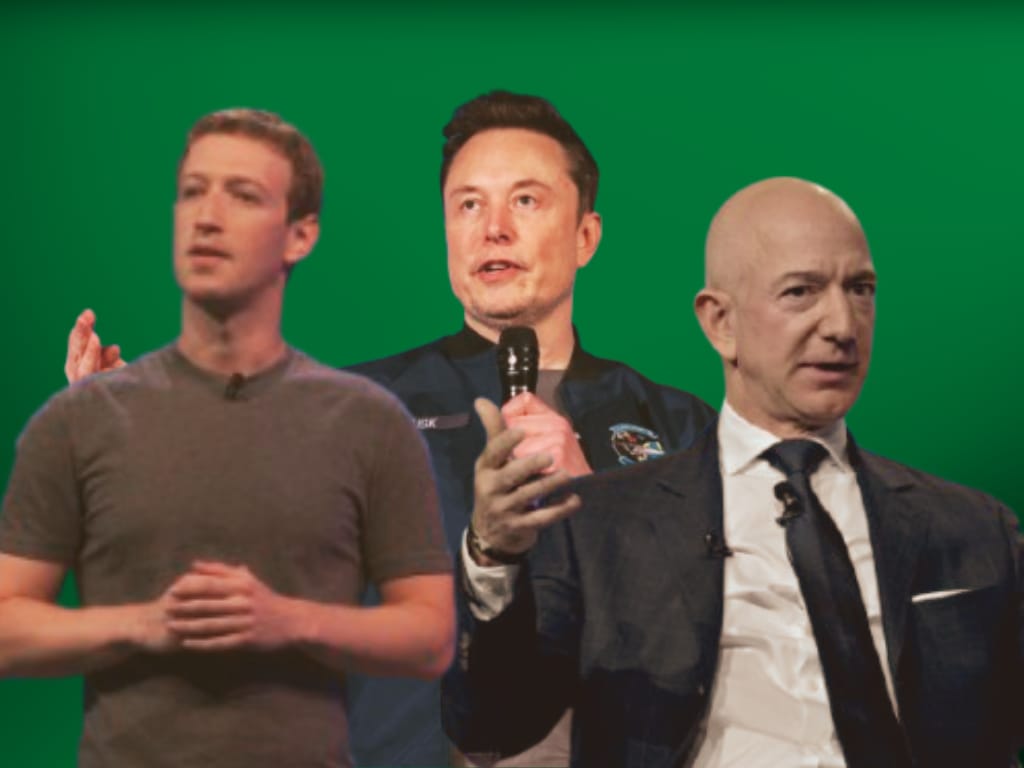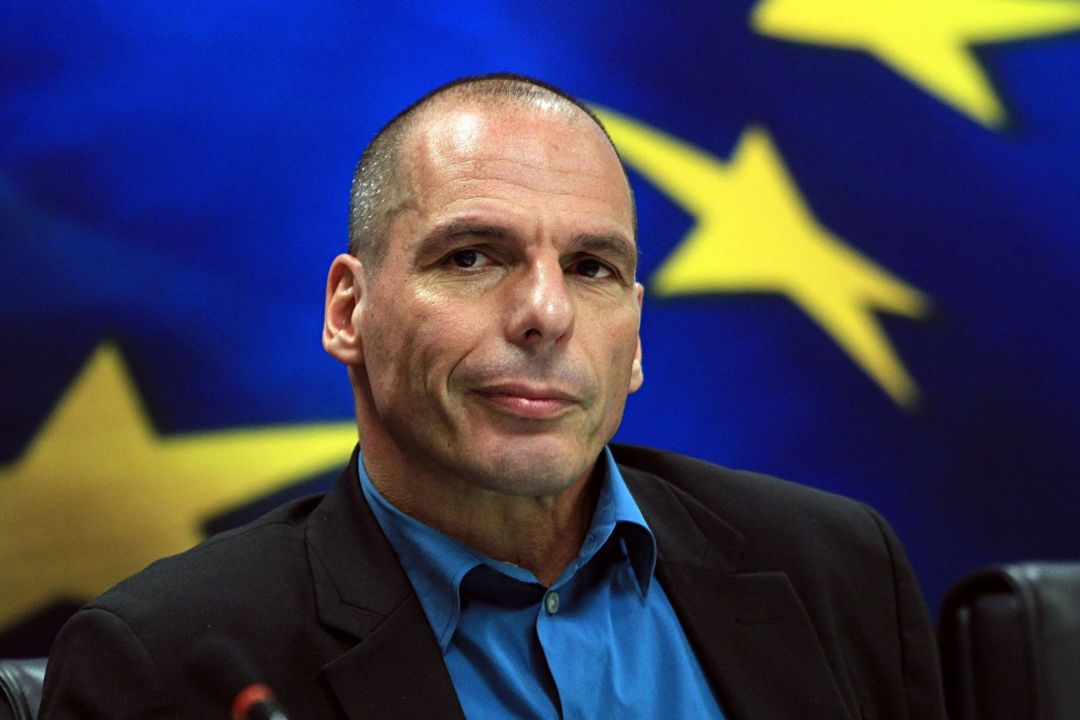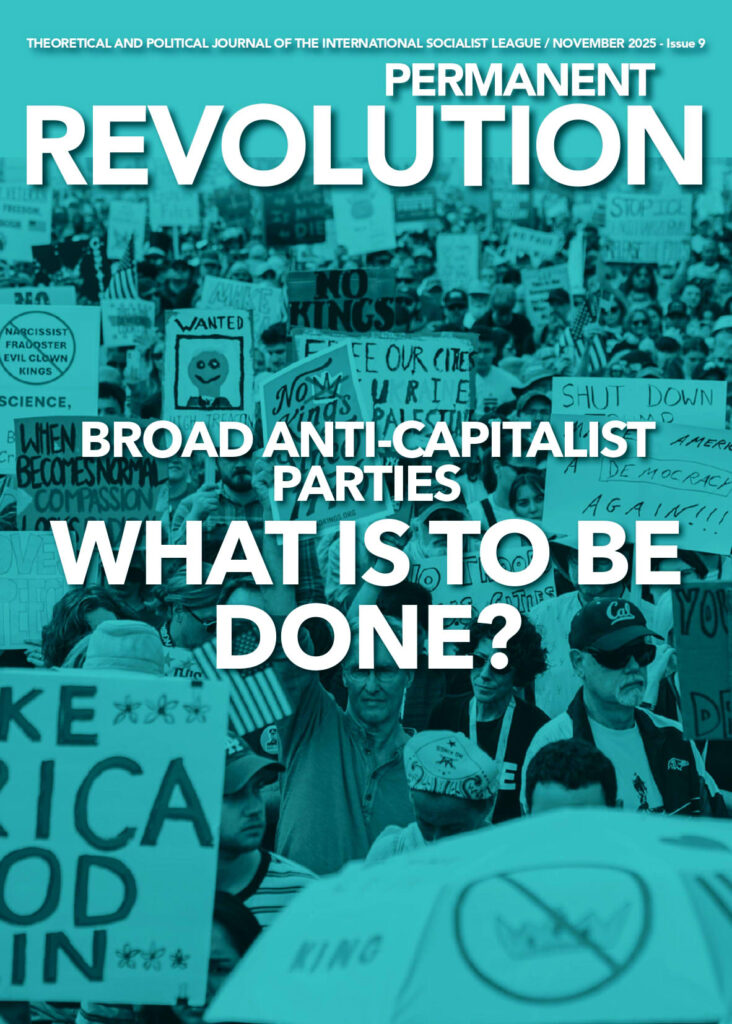By Martin Fuentes
In January 2015, the left-wing Syriza coalition came to power in Greece and became the first government in Europe to reject the austerity plans of the troika (European Union Commission, European Central Bank, IMF). The enthusiasm that Syriza and its president Alexis Tsipras generated grew as fast as it then plummeted when they proceeded to turn their back on the people’s rejection of austerity, capitulate to imperialist pressure and squander one of the greatest opportunities the left has had in recent history.
Almost ten years later, one of the main figures of Tsipras’ cabinet has regained popularity. Syriza’s Finance Minister, Yanis Varoufakis[1], has recycled an eye-catching concept: technofeudalism. With a series of extravagant statements, he claims that (however difficult to conceive) we no longer live in a society dominated by the classic capitalist bourgeoisie, but under a new system dominated by “claudalists”, contemporary versions of feudal lords whose power derives from controlling data and the big tech companies.
Neologisms like hypercapitalism, platform capitalism or rentier capitalism are insufficient to describe the present phenomenon, according to Varoufakis, who considers the changes we are witnessing so drastic that they can only be understood by accepting that a new mode of production now reigns.
Undoubtedly, the last decades have seen profound changes. Since the 2008 crisis, capitalism has mutated, deepening its most reactionary features, but also provoked mass mobilizations all over the planet. What place technology occupies in class domination under these circumstances is a valid question. How does Marxism understand modern times? Are the answers Varoufakis provides in these debates correct?
What is technofeudalism?
Many will agree that we are locked in a dystopia in which new technologies capture us more and more. Since Marx’s time, there has been clarity about the paradoxical effect by which ”machines acquire human characteristics and humans acquire machine characteristics”. However, we would be completely mistaken if we believed that nothing has changed since then. However, how much is innovation and how much is copying the old.
Varoufakis’ reasoning leans towards the second option, he sees the future repeating the past, but to a terribly drastic and disconcerting degree. The economist goes to great lengths to sustain his hypothesis that capitalism is disappearing despite many clinging to the now outdated term, just like what happened with feudalism when capitalism arose.
He goes on to explain that, just as the emerging bourgeoisie coexisted with the feudal lords, today’s new rising class is distinct from the traditional capitalist bourgeoisie. He calls them “claudalists“, since they have consolidated their power and subdued both their lagging competitors, the capitalists, and the new labor force, the cloud proletariat, through their control of new technologies and data stored in the “cloud”.
At the beginning of his text, he proposes a first definition: “The two pillars on which capitalism was based have been replaced: markets, by digital platforms that are authentic fiefdoms of big tech; profit, by the pure extraction of rent.”[2]
His initial mistake is perceiving capitalism in its most reactionary phase as a new mode of production. Elon Musk, Jeff Bezos or Mark Zuckerberg represent concentrated capital empowered by new mechanisms of super-exploitation and environmental depredation. Although they gain an advantage in relation to their traditional bourgeois competitors, they still have a presence in traditional industrial sectors like car manufacturing, in the case of Musk with Tesla, or clothing, food and personal care, in the case of Bezos with Amazon’s brands.

New technologies, new exploitation?
The economic reconfiguration Varoufakis perceives logically implies a social reconfiguration, as a new mode of production creates new social classes. In the ex minister’s technofeudalism, “cloud proletarians” are the successors of the classic proletariat, but now subjugated by “cloud capital” instead of the Taylorist organization of labor, accelerating the pace of production. “Cloud serfs” are an even more distinct category in relation to preceding classes. According to Varufakis, cloud serfs constitute a class that “chooses oppression”, social media users that “produce” content for the platforms with no remuneration.
The problem here is that Varoufakis does not distinguish precisely what it is that differentiates the “cloud proletariat” from the classical proletariat. Today we see the intensification of labor exploitation on platform workers, but there is a continuity in dependence on corporations, which euphemistically refer to wages as “payment of services” particularly in the applications sector. “Cloud serfs”, meanwhile, are still workers who consume an entertainment service and whose livelihood still depends on their work, so we can´t exclude them from the definition of working class.
The Internet: a false promise
The recapitulation on the history of the Internet that Varoufakis comments on is interesting. In the context of the Cold War, the internet emerges as an antinomy because it is “a non-commercial computer network, built by the American government and owned by it, which was outside the markets and capitalist imperatives, but whose objective was the defense of the capitalist world.”[3]
As a result of the curious event, “Internet One” appears (the “original” internet) of which only vestiges remained over the years. Since 1970, financial capitals have focused their interest on new technologies in order to maximize their profits. The merger of finance and the web escalated to such an extent that by 1980 the algorithms were so confusing that they escaped the understanding of their own creators.
After the fall of the Berlin Wall, the United States made progress in consolidating its world hegemony by propagandizing that “socialism” had failed. Imperialism promised a new democratic order, in the framework of which the internet was shown as a tool to connect the world and enable the exchange of knowledge in record time.
However, taking a leap to the present, Varoufakis’ analysis highlights the way in which the internet and new technologies ended up reinforcing the mechanisms of oppression of the majorities. What happened in between? Different reasons can be listed, but one of the ones highlighted by Varufakis is the enclosures phenomenon. Taking the example of the privatization of land in Europe during the capitalist “original accumulation”, the author refers to capitalists’ appropriation of the “common goods” of the internet that ended up shaping the model in which we navigate today.
Briefly describing this route allows us to see that the new technologies, currently in the hands of the main capitalist corporations, owe their origin to state planning and often meant an opportunity to democratize information and communications. However, free collaboration between users was progressively replaced by the commodification of a service in private hands, giving way to the scenario we currently see.
Rent and profit
It is clear that the great changes that took place after the 2008 crisis created a very different world. Varoufakis insists on the need for a “new narrative” to explain our reality. He claims that the resurgence of the economic aspects characteristic of feudalism are implied in the displacement of profit by “earnings” or rent. Like the feudal lords of the past, the claudalist ruling class no longer pursues technological innovation or investment in order to compete with their peers. Now the free market is becoming an old fantasy and its place is taken by “cloud fiefdoms”. In Varoufakis’ proposal, another breaking point in the transition from one system to the other was the pandemic, when the central banks of the national states injected large sums of money to save companies, which, instead investing in more production, continued to finance the cloud. The result would be the beginning of the “era of cloud capital”.
Thus explained, the statement about “the end of capitalism”, to which Varoufakis subscribes, finds meaning. But rent must be understood in its connection with capitalist accumulation in order to determine its feudal or capitalist character.
It is Duncan Foley who, following Marx, explains that “These rents are part of the whole of the surplus value generated in capitalist production, although in themselves they are not directly related to the exploitation of productive labor” (Foley, 2013, as quoted in Morozov, 2022). Additionally, considering the link of the “claudalistas” to the traditional productive industries, the relevance of human labor in conditions of exploitation becomes evident, since it is the only source of surplus value, from which the capitalist character of the rent follows.
Even so, Varoufakis’ proposal regarding the idle comfort in which the cloudalists live is not completely answered, without the need to make major investments or “lift a finger”. But reality contradicts the economist, there are a number of examples that demonstrate the concern of the great capitalists of new technologies to sustain investment. For example, Alphabet spent 91.5 million dollars on R&D from 2017 to 2020, Amazon spent 42.7 million dollars on research and development just in 2020 (Morozov, 2022).
“Servility to the bourgeoisie disguised as ‘economic analysis’”
The reconfiguration of the world panorama after the first world war and the Russian Revolution opened a period of intense debates in Marxism. In this context, Lenin reproached Kautsky that “(…) he turns back and, pretending to make an ‘economic analysis’, is now advocating, with lofty phrases about ‘historical materialism’, the subordination of the workers to the bourgeoisie, by flatly repeating, relying on quotations from the Menshevik Maslov, the old liberal conceptions of the Mensheviks.” (Lenin, 2007, p. 81)
Any resemblance to the present day is not purely coincidental. We started by commenting on the treacherous role of the European centre-left leaderships in recent years. Undoubtedly, they were responsible for the frustration that anticipated the rise of the far right, which today has a base of support on the power of large technological capital. Varoufakis, while analyzing, justifies his chronic “servility to the bourgeoisie” and suggests different mechanisms and reformist measures of institutional democratization but without mentioning the word revolution.
With Keynesian nostalgia for the welfare state, in the end, he confesses his inter-class proposal, stating that “In order to have any chance of overthrowing techno-feudalism and for the demos to return to democracy, it is necessary to bring together not only the traditional and the cloud proletariat, but also the cloud serfs and, moreover, at least some vassal capitalists”.[4]
This alliance with the “vassal capitalists” dusts off old and outdated formulas of subordination to the bourgeoisie. It is another side of the renewed attempt of social democracy to form “popular fronts” and variants to stop the far right, which, instead of confronting, they end up strengthening.
Despite the popularity of Varoufakis’ text, it is necessary to ask to what extent its dissemination responds to an editorial phenomenon and to what extent to the clarity of its concepts. The ex Minister of Economy is aware of the controversy of his statements, however, he does not bother to give very deep explanations either. We may think that he is basically looking to postulate disruptive concepts, but without solid foundations.
Although it is undeniable that capitalism is no longer as previous generations knew it and technology plays an important role in its current mutation, the impressionism of the intellectual petty bourgeoisie does not contribute a useful update of Marxist theory. On the contrary, it falls back on the fundamental conclusions. Since Marx’s time, it has been clear that the problem is not the machines themselves, but which class controls them.
It is the task of all revolutionaries to analyze and debate the new technological phenomena with rigor and patience. We have to understand them as fields of dispute complementary to the strategic struggle, which is the class struggle and the construction of a revolutionary party, to intervene in the battle of ideas and the struggle for socialism.
[1] Morozov, E. (2022). Criticism of the techno-feudal reason. New Left Review 133/134, pp. 99-142.
[2] Lenin, V. I. (2007). The proletarian revolution and the renegade Kautsky. The Frederick Engels Foundation.
[3] Varoufakis resigns to “facilitate the negotiation” with the EU. The Country (06/07/2015).
[4] Varoufakis, Y. (2024). Techno-feudalism. The stealthy successor of capitalism. Deusto.





